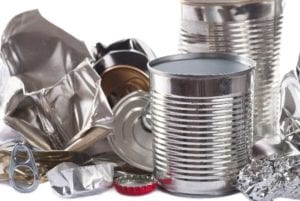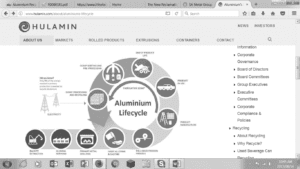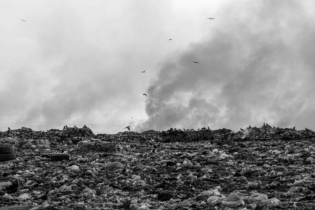
Metal packaging for recycling
MetPac-SA, the new industry body representing the interests of the local metal packaging industry, will be joining forces with the various packaging streams in South Africa during the month of September to encourage households to practice mindful recycling as part of Clean-up and Recycle SA week (11-17 September 2017).
“More than a third of all the aluminium currently produced globally originates from old, traded and new scrap. The high intrinsic value of metal scrap has always been the main impetus for recycling, independent of any legislative or political initiatives. In addition to this obvious economic dimension, growing environmental concerns and heightened social responsibility, have served to boost recycling activity in order to conserve resources and to avoid littering,” says Delanie Bezuidenhout, CEO of MetPac-SA.
Zero Waste goal
MetPac-SA is a Product Recovery Organisation (PRO) that brings together the entire metals packaging value chain in South Africa and gives the aluminium, steel and tin can industries a unified voice when presenting views, making recommendations or voicing opinions. These industry leaders work together to ensure that they support the greater packaging industry’s vision of “Zero Waste to the Environment” which includes:
- Cleaning-up of the environment;
- maximising diversion of metal packaging from landfill;
- increasing collection and recycling rates of metal packaging;
- ensuring that the manufacturing sector has access to a steady stream of good quality and clean recyclables;
- finding and developing new markets for recyclate, and
- reducing raw material consumption by driving the increased use of recyclate.
Whilst South Africa boasts an already impressive recovery rate of around 72% for used beverage cans, it believes that more can be done to divert other metal packaging such as aluminium foil, containers and empty tin cans from landfill.
“Whilst many households in South Africa do excellent work when it comes to recycling their beer and soft drink beverage cans thanks to successful school competitions run by Collect-a-Can, we believe that this is just the tip of the iceberg. Our waste management partners such as WastePlan and The New Reclamation Group confirm that they also readily accept and recycle metal food cans and aluminum food packaging at their commercial sites, and that they have sorters on-site to separate the different recyclable commodities,” Bezuidenhout says.
Avoiding food contamination
“Although metal packaging is highly recyclable and we are getting significant volumes, the biggest problem we are facing is food contamination” says Janvier Uzanyenayezu, assistant manager at the Kraaifontein Materials Recovery Facility. To this end, MetPac-SA reminds households to wipe clean or rinse their recyclables in used dishwashing water after use for the sake of hygiene and to ensure that the post-consumer materials are recoverable and offer value to recyclers.
“The metals packaging economy is a circular economy, as the resources used during the manufacturing process are not actually consumed during a lifetime, but simply re-used indefinitely. Therefore, their life cycle is not the traditional “cradle-to-grave” sequence, but rather a renewable “cradle-to-cradle”, Bezuidenhout emphasises.
She adds that the export market is another major end-user of scrap metals, as South Africa’s ferrous scrap exports totalled 644 000 tons to countries such as India, China and Pakistan last year alone.

Metal packaging and the circular economy
“Metal packaging comes in a wide range of sizes – from a small can for tomato concentrate, to a steel drum for bulk tomato transport, and everything in-between. It has a high recycling value and is regarded as one of the most recycled packaging materials worldwide.
Our vision is that zero metal packaging should end up in the environment. With the help of South Africans, we can achieve this target and help develop a strong, sustainable recycling industry,” Bezuidenhout concludes.






